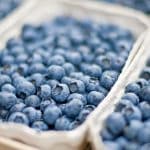
The Dangers Of Eating Highly Processed Food
Highly processed foods contain highly quantities of salt, fat and sugar, all of which has a negative impact on your health. They also contain little to no vitamins, minerals or fibre, which are vital for health and wellbeing.
Each time you choose to consume highly processed foods instead of whole foods it will have a greater negative impact on your health. Unsurprisingly, it is also likely to cause the scales to creep up.
So what do you need to know about highly processed foods?
Not all processed food needs to be avoided
There are different spectrums of processed foods, some of which are healthy and beneficial to your health, and some that should only be eaten very occasionally.
For example, there are some processed that could benefit for your health. Such as, frozen fruit and veg, this often contains higher levels of vitamins and minerals and can be consumed regularly. It is also often cheaper than fresh produce and won’t go off within a few days.
The fermentation process also has health boost properties. Fermented food such as tempeh, sauerkraut and kimchi have all been associated with improved gut health, lowered cholesterol, strengthened immune system and reduced risk of cancer.
There are also degrees of processing. For example, salted meat is considered a processed food, whereas smoked and cured meats such as sausages and ham are classified as ultra-processed meat. Avoiding foods that are ultra-processed wherever possible will help to benefit your health.
What health hazards to ultra-processed foods pose?
Increased risk of:
- Heart disease
- Type 2 diabetes
- Obesity
- 18% higher risk of mortality
Ultra-processed foods are also high in additives and sweeteners. One study showed that artificial sweeteners changed the brain pathways the regulated appetite, causing individuals to consume more calories and gain weight.
Digestion
The higher fibre content found in whole foods means that digestion of those items are much slower. This means that you will feel fuller for longer, and have less risk of experiencing digestive issues.
Highly processed foods contain little to no fibre, and therefore carries a high risk of digestive disturbances such as bloating and constipation.
Putting it into practice
Planning your food ahead of time will likely allow for unforeseen circumstances, and mean that you aren’t forced to purchase ultra-processed food. Wherever possible, opt for whole or minimally processed foods to consume maximum nutrients and boost your overall health. This will likely also save you money, ultra-processed foods have been found to be up to 40% more expensive!
Whole food preparation needn’t be time consuming. Cook lean meat or fish in the evening, seasoned with herbs or spices and a dash of olive oil. Serve with boiled or roasted veggies of your choice and some brown rice or whole grain pasta if you wish. Make enough for your lunch the next day to save on time.


